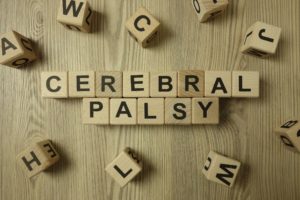
Most research on cerebral palsy tends to focus on childhood, as one in every 323 children in the United States has been identified as having the disorder. However, with modern treatment advances, many of these children are growing up to be adults. We are now seeing many health issues related to the disorder in later life.
Daniel Whitney, Ph.D., an assistant professor of physical medicine and rehabilitation at Michigan Medicine and lead author of the study said, “Unfortunately, far less is known about the health and clinical care needed to promote healthy aging throughout the adult lifespan for this patient population.”
Mark Peterson, Ph.D., M.S., FACSM, an associate professor of physical medicine and rehabilitation at Michigan Medicine and the senior author of the study added, “For example, how is this patient group’s overall health and quality of life in adulthood? There isn’t much research available to help answer this question and others.”
Along with their research team, Peterson and Whitney focused on mental health in adults with cerebral palsy and found that the patient population experienced an elevated prevalence of mental health disorders.
“And some of these mental health disorders were more pronounced in patients with cerebral palsy that also have comorbid neurodevelopmental disorders, such as intellectual disabilities, autism or epilepsy,” Peterson says. “Which makes sense, as patients with cerebral palsy have an increased risk for secondary chronic conditions during childhood.”
For the study, insurance claims for adults with cerebral palsy were examined along with adults who did not have cerebral palsy, and whether the individuals had any mental health disorders was determined.
“We found that adults with cerebral palsy had a higher age-standardized prevalence of mental health disorders compared to adults without cerebral palsy,” Whitney says.
It was noted that male adults with cerebral palsy had a higher prevalence of various mental health disorders compared to their male adult counterparts who did not have cerebral palsy. Schizophrenic disorders were increased by 2.8%, mood affective disorders by 19.5%, anxiety disorders by 19.5% and disorders of adult personality and behavior by 1.2%.
“Female patients with cerebral palsy also exhibited a similar or higher prevalence of those mental health disorders versus their female counterparts,” Peterson says.
Alcohol and Opioid Disorders
One exception to the study was found for alcohol and opioid disorders. Peterson explained, “We found that adult males with cerebral palsy exhibited higher rates of alcohol and/or opioid-related disorders compared to their male counterparts, whereas women with cerebral palsy did not exhibit higher rates of these disorders compared to their female counterparts.”
With this growing population of adults with cerebral palsy, this study outlines the importance of focus on mental health for clinicians caring for adults with the disorder. Improved mental health screenings and access to mental health services and resources are needed for these patients. Researchers hope this is only the beginning of more research aimed at the health issues adults living with cerebral palsy may face.